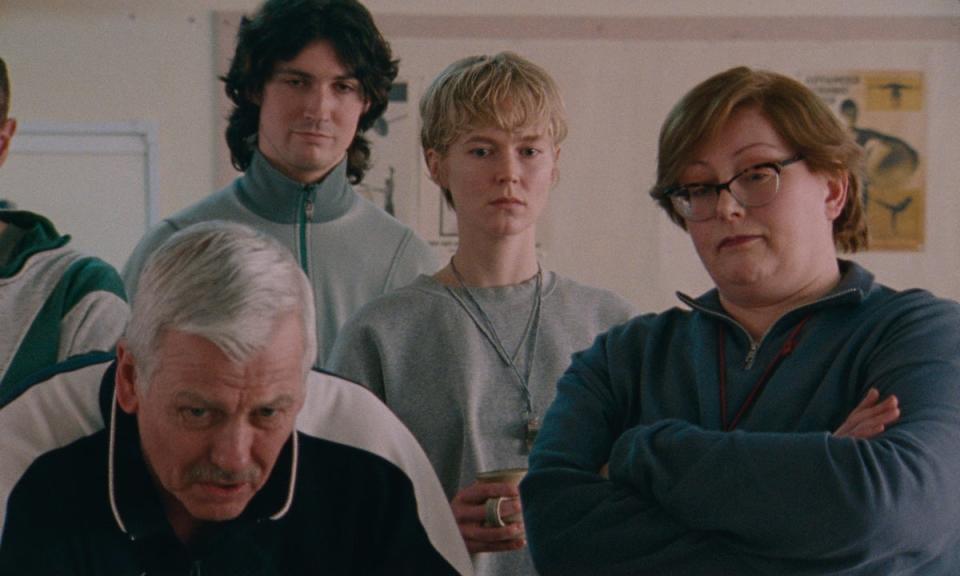Blue Jean movie review: Rosy McEwan is exhilarating in Section 28 film

There are many reasons to see this BAFTA-nominated period British drama. Top of the list, though, would have to be the performance of Londoner Rosy McEwen, who was one of the Evening Standard’s pick of rising stars to watch this year, in her first lead role in a film.
It’s the late Eighties and in a Newcastle upon Tyne secondary school, Jean, a quietly charismatic, semi-closeted PE teacher (McEwan) passes as a straight singleton – even though she’s part of a thriving lesbian community and has a riotously warm girlfriend, Viv (Kerrie Hayes, who is awesome).
A pugnacious new pupil, Lois (newcomer Lucy Halliday, a revelation), disturbs the fragile equilibrium of Jean’s existence, as does new legislation, Section 28, specifically designed to make it harder for teachers to be out and proud. The by-turns feral and fragile Lois is glad to be gay. But can Jean support this youngster without destroying herself?

Writer-director Georgia Oakley, in her debut film, crafts some deliciously precise dialogue (which is especially notable in a great scene involving a passive-aggressive conversation about bed-wetting). She’s equally assured when it comes to showing passion, filming the naked bodies of McEwen and Hayes with infectious enthusiasm. Yet titillation is not the goal. During a kiss between Lois and another teen, the camera hones in on Halliday’s ripe lips and cheeks in a way that feels thrillingly raw rather than icky.
At next week’s BAFTAs, Oakley will be up against Aftersun’s Charlotte Wells for the Outstanding Debut by a British Writer, Director or Producer prize. As well as being hugely talented, both filmmakers have a quirky take on how class and social status impact on self-esteem and achievement. Damn, if only they both could win.
The 27-year-old McEwen is compelling, and she’s especially exhilarating in a harrowing scene, shot in the blazing sunshine, in which she laughs until she cries, even if her Geordie accent does wobble once during a crucial exchange.
A few of the movie’s metaphors are obvious and maybe the ending is too tidy, but these are minor issues. Fit to stand alongside My Beautiful Laundrette and Pride, Oakley’s brilliant film offers hope to anyone who doesn’t feel they fit in and are trapped in a hostile environment. Bowie, whose 1984 song inspired the movie’s title, was jazzin’ for Jean. After watching this movie, you’ll feel the same way.
97 mins, cert 15
In cinemas

 Yahoo Movies
Yahoo Movies 
